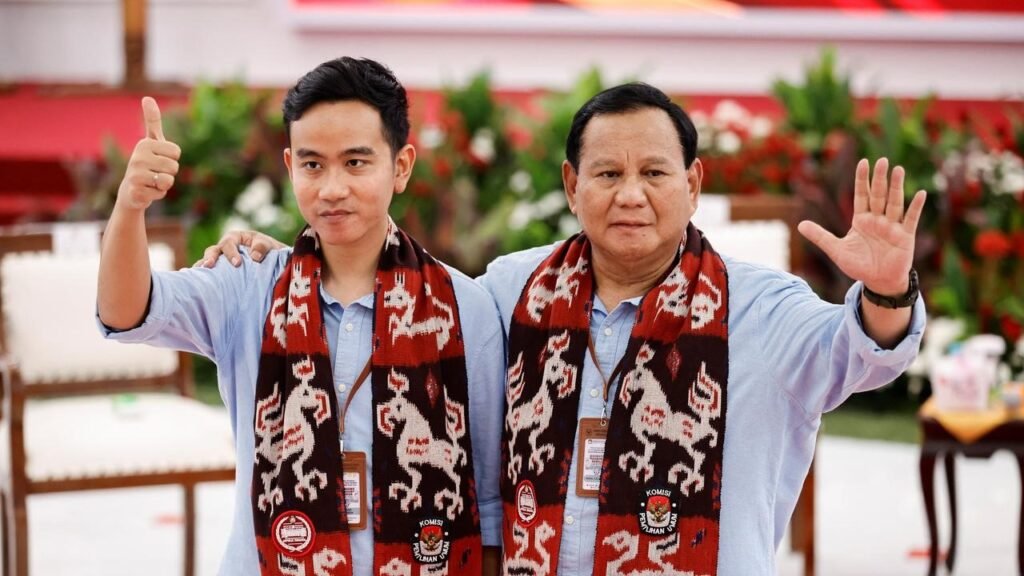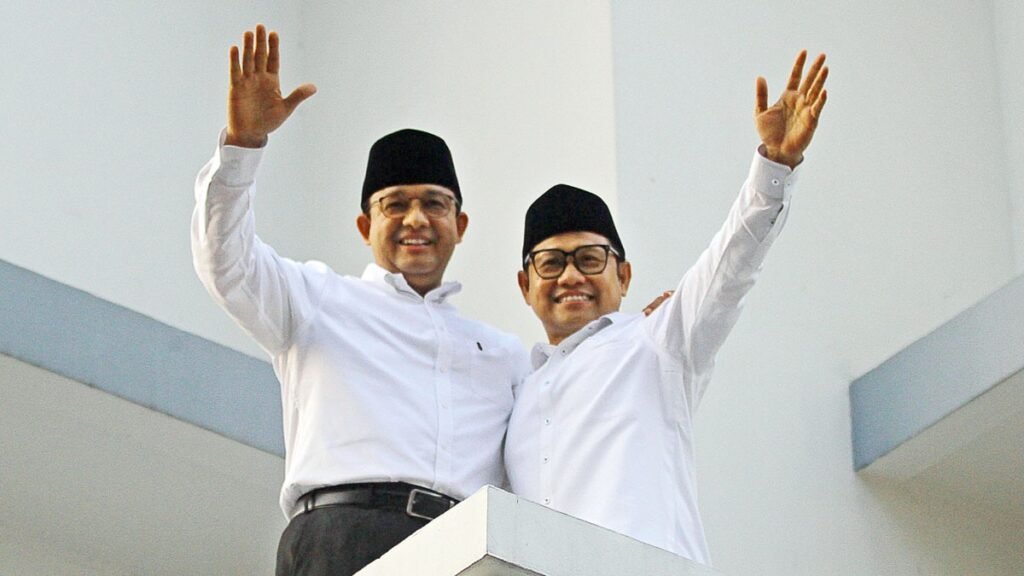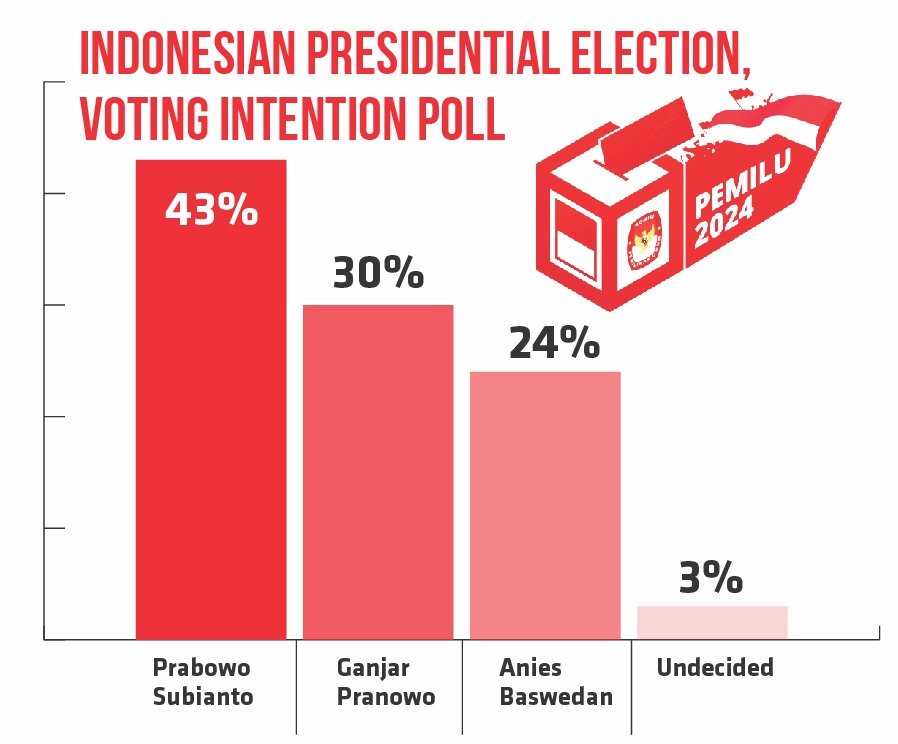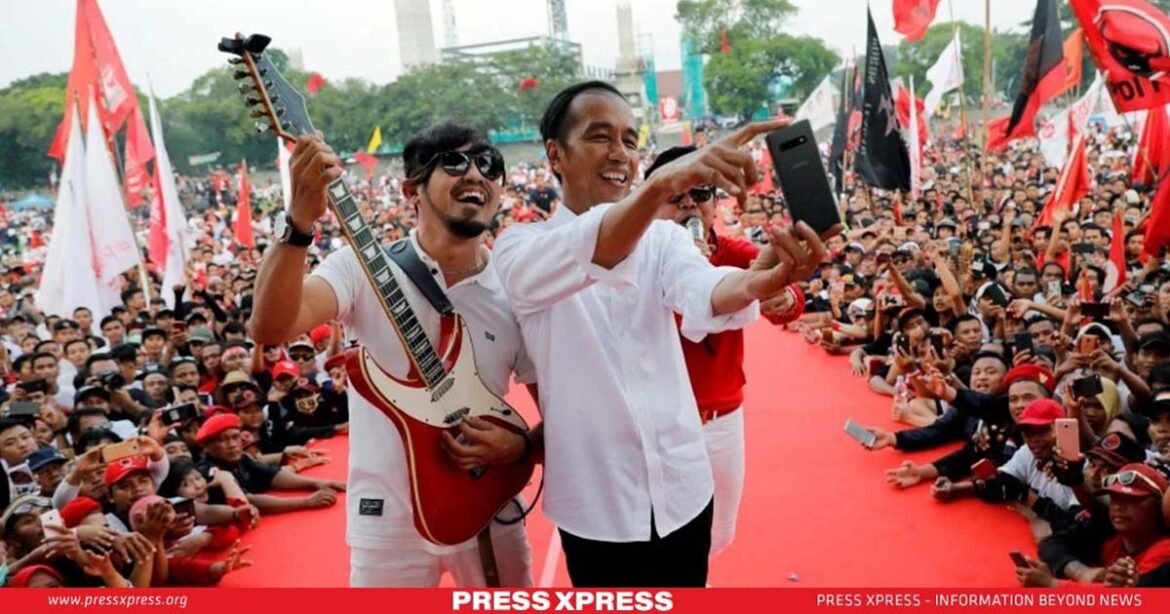Music has always been a powerful tool for political activism and expression, allowing artists and politicians to convey emotions, highlight social issues, and mobilize supporters. As Indonesia prepares for its 2024 general election, the three pairs of presidential and vice-presidential candidates are using music in different ways to appeal to the voters and showcase their personalities and agendas.
Prabowo Subianto and Gibran Rakabuming: A surprising alliance

Prabowo Subianto, a former military general and the leader of the opposition Gerindra party, is running for president for the third time, after losing to Joko Widodo in 2014 and 2019. His choice of running mate, however, is a surprising one: Gibran Rakabuming, the eldest son of Joko Widodo and a rising star in the ruling PDI-P party. The alliance between Prabowo and Gibran is seen as a pragmatic move to bridge the gap between the two rival camps and attract voters from both sides.
You can also read: Yao Wen Proposes Chinese Currency for Enhanced Trade with Bangladesh
Prabowo and Gibran have also tried to bridge the generational gap by using music that appeals to different age groups. Prabowo, who is 72 years old, has often played patriotic songs from the era of Sukarno, Indonesia’s first president and a national hero, to evoke a sense of nostalgia and nationalism. Gibran, who is 33 years old, has used more contemporary and upbeat songs, such as “Work Hard, Pray Hard” by rapper Rich Brian, to appeal to young and urban voters who are looking for innovation and optimism.
Ganjar Pranowo and Mahfud MD: A balanced duo
Ganjar Pranowo, the former governor of Central Java and a member of the PDI-P party, is running for president with the support of Joko Widodo, who is barred from seeking a third term. His running mate is Mahfud MD, a former chief justice of the Constitutional Court and a former defense minister. The pair is seen as a balanced duo that combines experience, integrity, and popularity.

Ganjar and Mahfud have also used music to showcase their balance and harmony. They have often performed songs together at their campaign events, showing off their singing skills and musical tastes. Ganjar, who is 53 years old, has a preference for pop and rock songs, such as “I Will Survive” by Gloria Gaynor and “We Will Rock You” by Queen, to convey his resilience and confidence. Mahfud, who is 64 years old, has a fondness for dangdut, a genre of Indonesian folk and traditional music, such as “Sakitnya Tuh Disini” by Cita Citata and “Goyang Dua Jari” by Sandrina, to demonstrate his humor and cultural sensitivity.
Anies Baswedan and Muhaimin Iskandar: A Controversial Pair
Anies Baswedan, the former governor of Jakarta and a member of the Islamist Prosperous Justice Party (PKS), is running for president with the backing of several conservative and religious groups. His running mate is Muhaimin Iskandar, the leader of the National Awakening Party (PKB), which is affiliated with the largest Islamic organization in Indonesia, Nahdlatul Ulama. The pair is seen as a controversial pair that has polarized public opinion with their divisive rhetoric and policies.

Anies and Muhaimin have also used music to reflect their controversial and polarizing image. They have often played songs that are either provocative or inspirational, depending on the audience and the message. Anies, who is 52 years old, has used songs such as “Rebel Rebel” by David Bowie and “Eye of the Tiger” by Survivor, to portray himself as a rebel and a fighter against the establishment. Muhaimin, who is 56 years old, has used songs such as “Heal the World” by Michael Jackson and “Imagine” by John Lennon, to present himself as a healer and a visionary for a better world.
Ganjar Pranowo and Mahfud MD Lead in Polls
A recent Roy Morgan Poll reveals that Prabowo Subianto, the runner-up in the 2019 Indonesian Presidential Election, has gained a formidable ascendancy over his rivals in the 2024 race. The poll, conducted in December 2023 with 1,255 Indonesian electors aged 17 or above, shows that Prabowo has secured 43% of the voting intention, a remarkable increase of 13 percentage points since the September quarter of 2023. This puts him on the brink of winning the Presidential Election in the first round, which is scheduled for February 14, 2024.
Prabowo’s closest competitors, Ganjar Pranowo and Anies Baswedan, have both seen their support plummeted in the same period. Ganjar, the Governor of Central Java and the candidate of the ruling PDI-P party, has dropped 8 percentage points to 30%. Anies, the Governor of Jakarta and the leader of the Gerindra party, has fallen 1 percentage point to 24%. Both of them are still vying for the second place, but they may not be able to stop Prabowo from clinching the majority in the first round. Only 3% of the Indonesian electors remain undecided between these three candidates, a decrease of 4 percentage points from the previous quarter.
What explains Prabowo’s surge and his opponents’ decline? The answer lies in the choice of the vice-presidential running mates, which the three candidates announced and registered with the General Elections Commission in late October 2023. Prabowo selected the Mayor of Surakarta (Solo) Gibran Rakabuming Raka, the eldest son of the popular incumbent President Joko Widodo, as his partner.
This move has bolstered Prabowo’s appeal among the supporters of Jokowi, who cannot run for a third term due to constitutional limits. Prabowo has also gained the endorsement of Jokowi’s party, PDIP, which has formed a coalition with Prabowo’s party, Gerindra, and several other parties.

Ganjar and Anies, on the other hand, have failed to attract more voters with their vice-presidential picks. Ganjar teamed up with Mahfud MD, a former chief justice and a minister in Jokowi’s cabinet, while Anies partnered with Muhaimin Iskandar, the chairman of the PKB party and a former minister. Both of these pairs have registered with the General Elections Commission on 19 October 2023, six days before Prabowo and Gibran. However, neither of them has managed to create a strong impression or a clear vision for the country. Ganjar’s support has dwindled among the PDIP loyalists, who have switched to Prabowo and Gibran. Anies’ support has also eroded among the Gerindra followers, who have followed Prabowo’s lead.
The 2024 Indonesian Presidential Election is not only a contest between the three candidates, but also between the party coalitions that back them. These parties are also competing in the Indonesian Legislative Elections, which will take place on the same day as the Presidential Election. The outcome of these elections will determine the balance of power and the direction of policy in the world’s third-largest democracy. Will Prabowo and Gibran maintain their momentum and win the election in the first round? Will Ganjar and Anies be able to catch up and force a second round? Or will there be a surprise twist in the final weeks of the campaign? These are the questions that millions of Indonesians will have to answer on February 14, 2024.
Conclusion
Music is a powerful medium that can influence and inspire people in various ways. The 2024 Indonesian presidential candidates have recognized this and have used music as a strategic tool to communicate their political messages and identities. Whether music will make a difference in the outcome of the election remains to be seen, but it is clear that music will continue to play a role in the political landscape of Indonesia.


